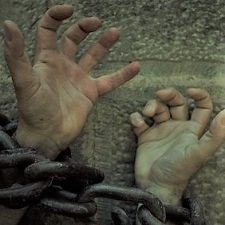 “Under its guidelines, California pastors who believe homosexuality falls short of our Creator’s intentions would be forbidden from saying so. Forbidden from encouraging congregants who are same-sex attracted to abstain from homosexual behavior (even if they are heterosexually married). Forbidden from encouraging congregants to abandon homosexuality as a primary means of self-identification.”
“Under its guidelines, California pastors who believe homosexuality falls short of our Creator’s intentions would be forbidden from saying so. Forbidden from encouraging congregants who are same-sex attracted to abstain from homosexual behavior (even if they are heterosexually married). Forbidden from encouraging congregants to abandon homosexuality as a primary means of self-identification.”
(Joe Dallas – The Stream) The California Assembly will soon vote on a resolution laying the framework for what many of us have feared and predicted for years: the power of the State to dictate moral positions to the Church.
Assembly Concurrent Resolution 99, in its own words, “calls upon religious leaders with conviction to counsel on LGBT matters from a place of love, compassion and knowledge of the psychological and other harms of conversion therapy.” It further resolves that “in addressing the stigma often associated with persons who identify as LGBT,” the State of California now calls on pastors and religious workers to “model equitable treatment of all people of the state.”
Telling Pastors What They Should Do
Pastors in the Golden State may wonder if they really need a legislative reminder to counsel with love and model equitable treatment. They also might greet this resolution with a clerical yawn. After all, who cares if the Assembly wants them to avoid stigmatizing lesbians and gays and treat everyone fairly? That’s their job description anyway. No big deal.
The deal gets bigger, though, as the words get clearer. The resolution is designed specifically to guide pastors when they counsel people who are attracted to the same sex. It invokes Conversion Therapy as the boogeyman ministers should avoid.
It further defines Conversion Therapy as “practices or therapies that attempt to create a change in a person’s sexual orientation.” “Sexual orientation” is defined by the American Psychological Association as, among other things, “a person’s sense of identity based on [homosexual] attractions, related behaviors and membership in a community.”
Research